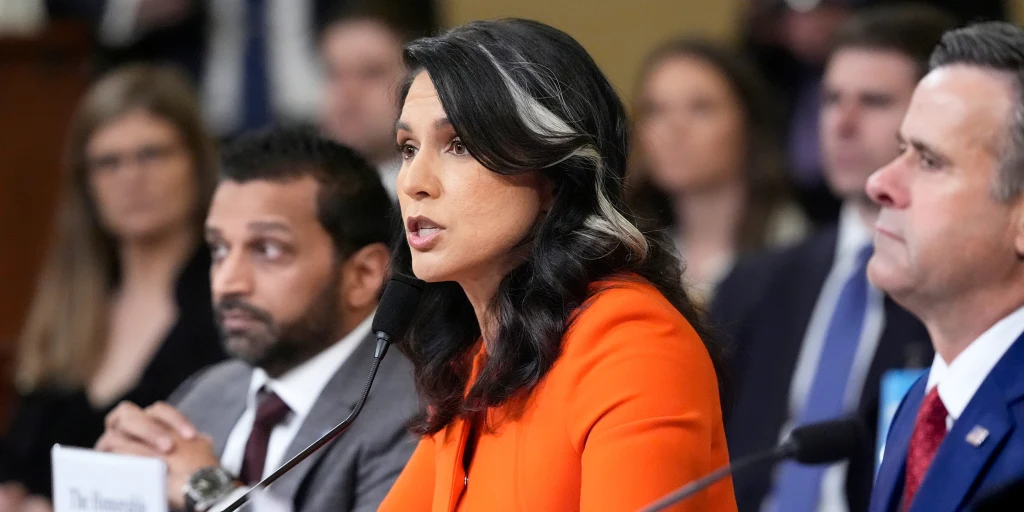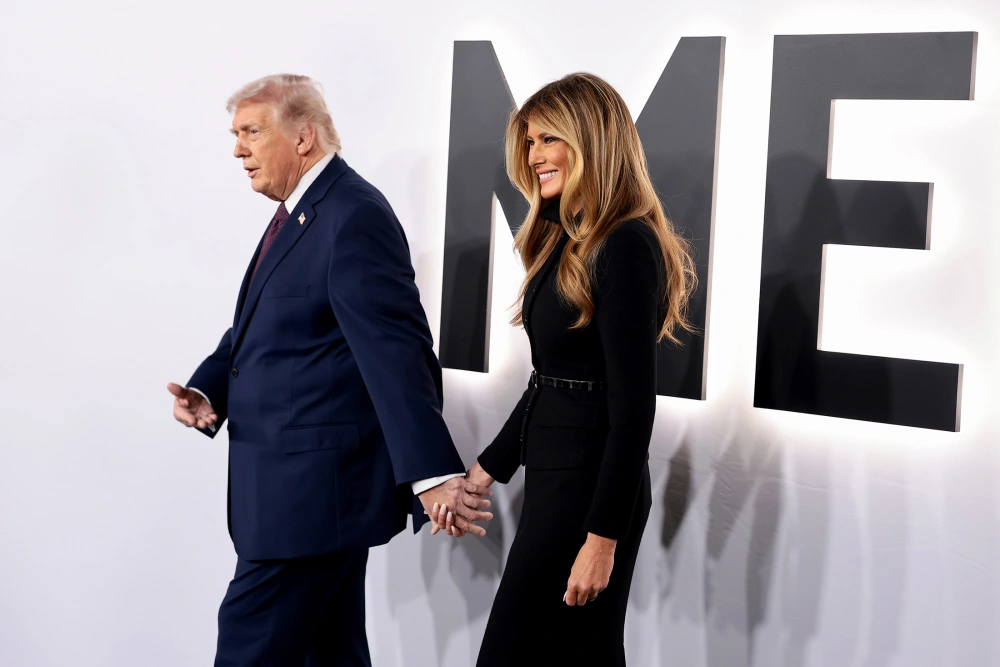Plus, Trump says he will impose new tariffs on automobiles coming into the U.S.
The fallout from a group chat in which Trump administration officials discussed sensitive military plans that inadvertently included a journalist continued to dominate Washington on Wednesday.
Here’s our team’s latest reporting:
Chat transcript released: The Atlantic published a full transcript of the messages, in which Defense Secretary Pete Hegseth specified types of U.S. military aircraft and the timing of recent airstrikes against Houthi militias in Yemen. The texts did not include information about specific targets.
Trump officials react: National Intelligence Director Tulsi Gabbard said the leaked group text chat was a mistake but reiterated her claim that no classified information was shared on the chain as she testified before the House Intelligence Committee on Wednesday. Appearing before the Senate Intelligence Committee on Tuesday, Gabbard and CIA Director John Ratcliffe both claimed no classified material was shared in the chat.
White House press secretary Karoline Leavitt forcefully pushed back against The Atlantic’s latest report at a briefing.
“We have said all along that no classified material was sent on this messaging thread,” she said. “There were no locations, no sources or methods revealed, and there were certainly no war plans discussed.”
Former officials react: Information about an upcoming U.S. military attack on an adversary is typically considered classified, according to at least four former national security and intelligence officials who handled legal matters.
The former officials did not know anything specific about the status of the information in the Signal chat, but they said it would be difficult to imagine a scenario in which details of military operations would not be treated as secret and damaging if they were disclosed.
Lawmakers react: The incident has provoked intense criticism from Democratic lawmakers, some of whom have called for the resignations of Hegseth and Trump’s national security adviser, Michael Waltz.
Sens. Roger Wicker, R-Miss., and Jack Reed, D-R.I., the chairman and ranking member of the Armed Services Committee, respectively, said they would request an “expedited” inspector general’s report into the matter. Wicker also said he would ask for a classified briefing from the administration for committee members.
Asked directly whether he believes the information discussed in the chat is — or should be — classified, Wicker replied: “The information as published recently appears to me to be of such a sensitive nature that, based on my knowledge, I would have wanted it classified.”
Rep. Don Bacon, R-Neb., a retired Air Force general, has rebutted the administration’s assertion that the text chain did not include “classified” material or any “war plans.”
“The White House is in denial that this was not classified or sensitive data,” Bacon said. “They should just own up to it and preserve credibility.”
Explainer: Signal isn’t infallible, despite being one of the most secure encrypted chat apps, by Kevin Collier
Signal chat highlights a sharp departure from the norm in U.S. national security
Analysis by Andrea Mitchell
There is nothing normal about it. For most national security experts outside the Trump orbit, the full text messages The Atlantic published only reinforce their outrage about discussing the Houthi operation on Signal, a commercially available app the Pentagon recently warned is being actively targeted by “Russia-aligned threat groups.”
Widespread anger and incredulity about all this were amplified by the distinctions Defense Secretary Pete Hegseth and the top intelligence officials are making between “war” plans and “attack” plans.” That also extended to National Intelligence Director Tulsi Gabbard’s testimony that the information in the texts was not classified.
But the Trump team’s treatment of intelligence in this instance raises broader questions. Why were these conversations taking place by text instead of in the Situation Room — which is equipped to securely bring in members of the team not on site? Or in the Sensitive Compartmented Information Facilities (or SCIFs) the government sets up for national security Cabinet members in their homes? Wouldn’t that create a better environment for deeper discussions about such an important military operation — the new administration’s largest to date to try to protect international shipping in a critical seaway from Houthi terrorists?
Where was the discussion about possible Iranian reaction or how to notify the Israelis? Whether to engage the Europeans? Perhaps if they had been face to face, rather than texting, there would have been less posturing, such as Vice President JD Vance’s criticism on the text chain that the Europeans — whom he also slammed in a speech last month in Munich — should do their part to protect international trade from Houthi attacks. Hegseth chimed in, writing, “VP: I fully share your loathing of European free-loading. It’s PATHETIC.” The message has fueled growing anger among European leaders at the administration.
What is also striking is the team’s virtual high-fiving via emojis — a fist bump, a flame, a flexed bicep. Meanwhile, when Gabbard was asked at a congressional hearing Wednesday about her repost on her personal X account of a Russia state media contributor, she said, “I maintain my First Amendment rights to be able to express my own personal views on different issues.”
It all underscores how this is a significant departure from the way previous administrations from both parties have handled national security and intelligence issues.




